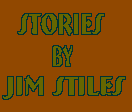

MY BUDDY HERB RINGER...
It’s hard to believe that seven years have passed since my friend Herb Ringer died in December 1998. For those of you who are long-time readers and familiar with the Herb Ringer Story, bear with me. For those of you hearing of Herb for the first time, let me introduce you to a wonderful and gentle soul who was a dear friend of mine for almost 20 years.
I met Herb when I was a ranger at Arches in the early 80s. He was traveling alone with his Burmese cat Namtu and had settled into site #19 to stay a week or two. I met him that night as I made the rounds collecting fees. Herb was concerned about the camping limit but I told him he could stay as long as he wanted. He was the kind of camper that I wished could stay all season.
We became great friends over the years. He visited me each spring and autumn as he made his yearly jaunt across the country to visit relatives back east. When he was 81, macular degeneration forced him to quit driving and he spent his last four years in Fallon, Nevada. I visited him there as often as I could and we remained close until his death.
We shared a love of history and when he began to show me his incredible collection of photographs and journals, thoughts and images of an American Past that few now recall, I knew he could play a vital part in this newspaper. I began sharing those words and pictures in the first issues of The Zephyr and they have been a regular feature ever since.
Sometimes I like to give Herb more than just a page and so this issue contains nine pages of "vintage Herb." I still strongly believe that there’s a book here; in fact, many of the pages offered in this issue were originally prepared as part of a book proposal. The publisher came close to proceeding with the project but backed out at the last moment. I am convinced there must be a publisher out there who sees the value in sharing this man’s images with a culture that has become so disconnected from its past. How can we possibly hope to make this a country worth living in again if we don’t recall what was lost?
"The Open Road" with Herb Ringer begins on page 15.
IT’S CHRISTMAS: WILL THE REAL JESUS
PLEASE STAND UP?
Every once in a while, when I’m feeling particularly masochistic, I’ll power up the AM radio and overdose for a few hours on non-stop vitriol from my buddy Rush Limbaugh. I long ago quit taking his venomous diatribes personally (or seriously) and now try to view his bellicose blatherings in the spirit of goofball entertainment. It is still stunning to realize, however, that 20 million listeners tune in to this gas bag each day and I wonder how many of them swallow his rhetoric whole and how many, like me, require many grains of salt to wash down his rants.
About a year ago, the Limbaugh Show was nearing the top of the hour, a minute or so from a hard break and Rush shared with his audience a fact that he found bewildering. He noted that most aids to former President Clinton who wrote books about their time in the White House almost always defended their leader. Meanwhile, Rush observed, almost all of President George W. Bush’s assistants who had left the administration and who had chosen to write their own books had offered scathing assessments of their ex-boss. How could this be, Rush wondered?
Here is a known womanizer and liar and his former aids love him, complains Limbaugh. And here’s George W., a man of unquestionable high moral values and ethics and his staff loathes him. Limbaugh paused a moment as the clock moved toward the break.
"Could this loyalty to Clinton come from the fact that many of his former aids have DIED under mysterious circumstances? Maybe they’re afraid to speak the truth!"
The musical prompt that ends each segment of the show could be heard now, and Rush, over the closing yelled, "Just a thought...Just a thought."
When the program returned after the news and commercials, he never mentioned it again. But he’d planted a seed in the minds of his "ditto heads," totally fabricated and hateful and false, but well-planted and nourished just the same. And yet his audience is dominated by conservative Americans who would overwhelmingly call themselves Christians.
And not just Christians. "Good" Christians. The ones who look disparagingly at liberals and Democrats. Who think anyone left of Center is a traitor to Jesus himself. I actually have an evangelical relative who thinks it’s impossible for a Democrat to go to Heaven. He really says that.
So the other day, I’d found Limbaugh again on the dial–he’s everywhere out here in the Rural West—and he was actually talking on the air with one of those God Forsaken Heathens. Rush’s screeners rarely let a liberal make it on the air and when they do, it’s usually the kind of liberal that even a liberal takes cover from–the whiny emotional, fact-deprived Lefty who does more damage than good when he or she gets to defend the liberal cause.
This particular caller was complaining about the separation of Church and State or the growing lack of it in the Bush Administration. The sacrificial lib noted that the laws of the nation should not be based on religious teachings, and in particular, the Bible. Limbaugh protested. "How can you say something like that?" Limbaugh countered. "Look at the Ten Commandments! That’s just a good set of values about how to live a good life! How can that be wrong?"
The caller didn’t realize it but he had Limbaugh. He had him completely. And he let the moment pass.
So do most liberals, who are so busy maintaining their own ideological separation of church and state turf that they can’t see the broader implication of such a comment.
It’s so simple. What’s the...is it the third commandment?
"Thou shalt not kill."
It doesn’t get any clearer than that. It doesn’t say, "Thou shalt not kill, except when the national security of the United States is threatened." And it doesn’t say, "Thou shalt not kill unless the other guys started it." And it definitely doesn’t say, "Thou shalt not kill thousands of innocent civilians unless it protects the vital vested interests of the United States." There are no caveats. No exceptions to the rule.
Still, in the Old Testament, there are enough contradictory passages to confuse anyone. In the wake of September 11, I must have heard, "an eye for an eye," invoked a thousand times, which is why I usually steer clear of the Old Testament.
To be honest, I’m not a very religious person and am not that well-versed in either of the Testaments. I grew up in the Methodist Church and went to Sunday School until I was 17 (but that was mostly because I had a crush on Jayne Novicki).
As an adult, I rarely go to church. In fact, I think the last time I attended services was a decade ago when I visited my buddy pastor Don Falke at his new parish in Pineland, Texas. He’d previously served a few years in Moab and never could get me to attend when he was just down the street.
But I did pick up enough information as a kid to be thoroughly confused. On the one hand, Christianity at its core seemed to embrace the message of Love and Tolerance and, there’s no other way to put it—Non-violence. Anyone who gets even a primer in the Gospels remembers that if slapped on one cheek, we’re supposed to turn and offer the other and that we’re supposed to love our enemies as we love our friends. So as a child, the contradictions were stark. If we’re supposed to love our enemies why do we fight so many wars? If we’re supposed to turn the other cheek, why do we have the death penalty? The hypocrisy was unavoidable and my questions on the subject usually drew blank stares or shrugs of the shoulder. No one could explain this strange duality to me.
Decades passed and I can’t say that I spent much of my time agonizing over those contradictions. But in the last decade, as I’ve watched the Christian Right Wing of the Republican Party assume the role of spokesperson for Jesus Christ, it seemed like a good time to review his words and see if perhaps I’d missed something.
I didn’t. Two years ago I wrote a piece of fiction for The Zephyr, the first and only work of fiction to make the pages of this publication. It was called, "When Jesus Spoke to the Burning Bush," and was about an otherworldly meeting between President Bush and Jesus Christ in the Oval Office, a few days before the Iraq War began. (You can still read it on-line–it’s at the top of the home page.)
To research the story I went back and read the Four Gospels of the New Testament. I still struggle with King James English but the message was clear. Christianity is a pacifist religion. He allowed no exceptions. His disciples would push him, trying to find an exception to the rule, but Jesus was firm. He even went so far as to refute the message of the Old Testament, the passage that gives the vengeance-prone so much comfort. In the New Testament, Jesus says, "You have been told an eye for an eye. I say to you now, if they take one eye give them the other." Not exactly fire and brimstone stuff.
The other quotation that stuck with me since childhood was the verse that refers to the wealthy. "It is easier for a camel to pass through the eye of a needle than it is for a rich man to enter the Kingdom of Heaven." That one had to be explained to me by my elders and with all kinds of qualifications as well. But clearly, Jesus Christ did not think much of the material world then and I doubt he’d be very impressed in 2005 either.
For me, whether you believe in the divinity of Jesus Christ or not, the philosophy of Christianity as it was originally intended, is unassailable. I recently listened to a Catholic nun interviewed on public television. She said that to understand the message of Christianity, as it was laid down by Jesus, all one had to do was read the Sermon on the Mount. It’s all there, she said. From those words, the message is indeed simple: Always help those who have less than you and never hurt anybody.
Period.
This kind of interpretation troubles conservative Christians who prefer to accept the divinity of Jesus than follow his teachings. They believe he is the Son of God but reject the most fundamental aspects of his beliefs.
This is also an interpretation of Christianity that liberals should embrace, whether they’re Jimmy Carter Christians or dyed-in-the-wool Atheists. How is it possible that war-mongering greedheads have become the spokespersons for Christianity?
After the 2004 election, Democrats found themselves doing the "agonizing re-appraisal introspection Thing." Many of them are searching for a way to embrace the "family values" issue by moving farther to the right, when in fact they should be moving farther toward the Truth. What have they got to lose? People are hungry for something new and different...something with meaning and with heart. We should all have the courage to defend true Christian values and the right to express them, even if we’re not Christians.
How can we be anything but proud to defend the notion that killing is wrong, that war is immoral and that greed and opulent wealth are gold-plated obscenities?
Right Wing Christians should be held accountable for both their actions and their rhetoric—if they want to openly reject the teachings of Jesus Christ as impractical, silly and unworkable, I can at least respect them for their honesty.
But they can’t have it both ways. "Praise the Lord and pass the ammunition" never sounded like anything that came from the heart and soul of The Prince of Peace.
STILES’ ROAD RULES #3
These are difficult times for people like me. I love to drive. Nothing soothes me more than a long empty stretch of road and a full tank of gas and no known destination. While I loathe the crowded freeway, finding that deserted highway is something I always long for and often seek. I love the rumble of the road. I love spotting a little café in a town I never knew existed until the moment I drove into it and stopping for pie and coffee and listening to locals talk about last Friday’s high school football game and the price of cattle. I love hearing the singing meadowlarks as I slowly rattle by their perches on fence posts and power lines. I like to roll down my window and moo at the standing cattle and wonder if "bovolexia," the irresistible urge to moo at cows in a field is really an affliction that will someday produce its own special medication. I love driving into a thunderstorm and listening to the rhythm of my wipers.
I know it’s wrong to admit I love to drive and I know I cannot begin to justify my addiction, but there it is, for all of you eco-purists out there, who want to call me a hypocrite.
I am guilty as charged.
Now with the price of gasoline stuck in the vicinity of $3, double what it was a year or so ago, and knowing that to wish the price would fall dramatically runs counter to my broader view of energy consumption in America, I am wracked with guilt and indecision. I knew I had to do something.
First I gave up my beloved Zephyr transportation fleet vehicle for anything but the absolutely necessary journeys. My 1986 GMC pickup which sports 226,000 miles on the odometer and which has faithfully hauled Zephyrs from printer to public for more than a decade, slurps up gasoline faster than an elephant eats peanuts. It might get 15 mpg on a good day, moving mostly downhill, which means I can hope for about 180 miles on $35 of fuel. It now costs about $170 in gas, just to drive to Tooele for a press run.
So I’ve forced myself to moth ball the Brown Bomber, firing it up only to keep the battery charged and the fluids circulating and to get the Z printed. I rely on my 1999 Subaru Forester on a daily basis and although I’ve never really developed the personal bond with this vehicle that I’ve experienced with other cars in my automotive past, I can say nothing but good things about her performance and efficiency. It always starts, has never broken down (knock on my pointy head) and even at above freeway speeds manages to get 30 miles per gallon.
But I knew the Subaru and I could do better and I knew it would require a sacrifice on my part. In previous editions of "Stiles’ Road Rules," I offered nothing but scorn and contempt for those of you who fail to maintain the posted speed limit. My motto has always been, "Stay with the Traffic Flow or Get the Hell Out of MY Way." I could move from tranquility to road rage faster than you can say, "slow moving Winnebago," and some of my friends, experiencing my rage for the first time seriously suggested counseling.
Economic necessity and a nagging and annoying need to "do the right thing" changed all that. I slowed down.
If you’re under 40 years old, you probably don’t remember that in 1973, President Nixon ordered a reduction in speed limits on all federal highways to 55 mph as a means of conserving energy. For a country accustomed to speed, the double nickel national speed limit caused severe shock to the motoring public and required a major readjustment. Imagine driving across the Cisco Desert from Green River to Grand Junction at 55 mph...it was excruciating at first. It had never occurred to most Americans that driving at a slower speed had anything to do with fuel economy. When Nixon first announced the speed limit reduction, I was skeptical and decided to put his proposal to the test. So I drove from Louisville to Cincinnati one weekend to visit my parents and scrupulously monitored my speed both ways. I became a believer when my gas mileage improved by 15%.
Still the national speed limit was opposed by many Americans, particularly the trucking industry. In 1987, lobbyists convinced Congress to raise the speed limit on rural interstate freeways to 65 mph, but it wasn’t until 1995, 21 years after its inception, that the 55 mph speed limit was finally abolished by Congress.
Now in 2005, I have imposed my own national speed limit upon myself. I keep my speed under 60 on two lane roads and under 65 mph on the interstates. I try not to make a nuisance of myself by creating logjams for faster moving vehicles. If there’s no opportunity for cars and trucks to pass, I’ll pull over and let them go by, but if timid drivers who lack passing skills miss clear opportunities to get by me, they’re going to save fuel whether they like it or not.
Keep in mind that I live in the Rural West and don’t fight heavy freeway traffic on a daily basis, where trying to drive at 55 is a suicidal gesture. But out here, when the road is relatively empty and I know my vehicle’s capabilities and my own driving skills, I’ve even begun coasting on the long grades. Did you know that northbound between Monticello and Moab, you can coast for nine miles? That’s over 15% of the 54 mile journey.(I’m sure I’ll get calls from the Utah Highway Patrol on this one, so please don’t try it yourself.)
The bottom line for all my energy saving efforts has been an increase in my fuel economy from 30 mpg to 36 mpg or a 20% improvement. On a 15 gallon tank, that means I travel 90 miles farther than I did before. That’s like a free trip to Grand Jct. (if not back again).
Beyond that, I feel calmer. With some notable exceptions (those damn mega-motorhomes!), my road rage has gone into hibernation. Life seems just a little bit easier to cope with, now that I’ve removed myself from the fast lane.
And I have more time to moo at the cows.







